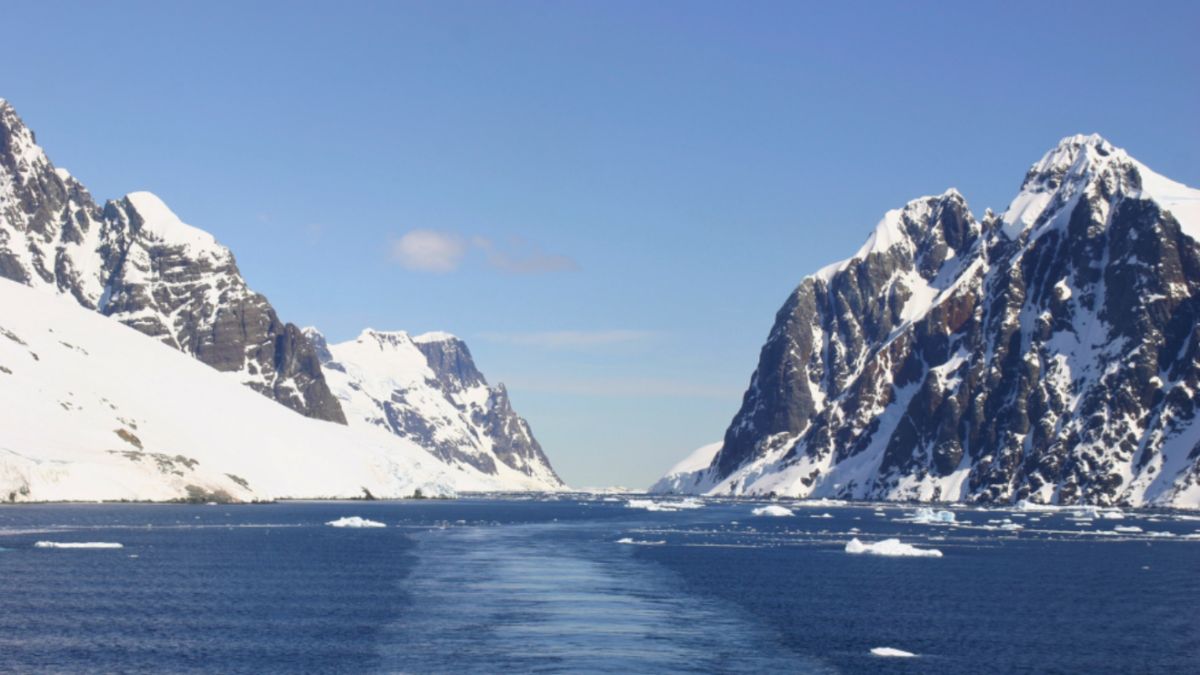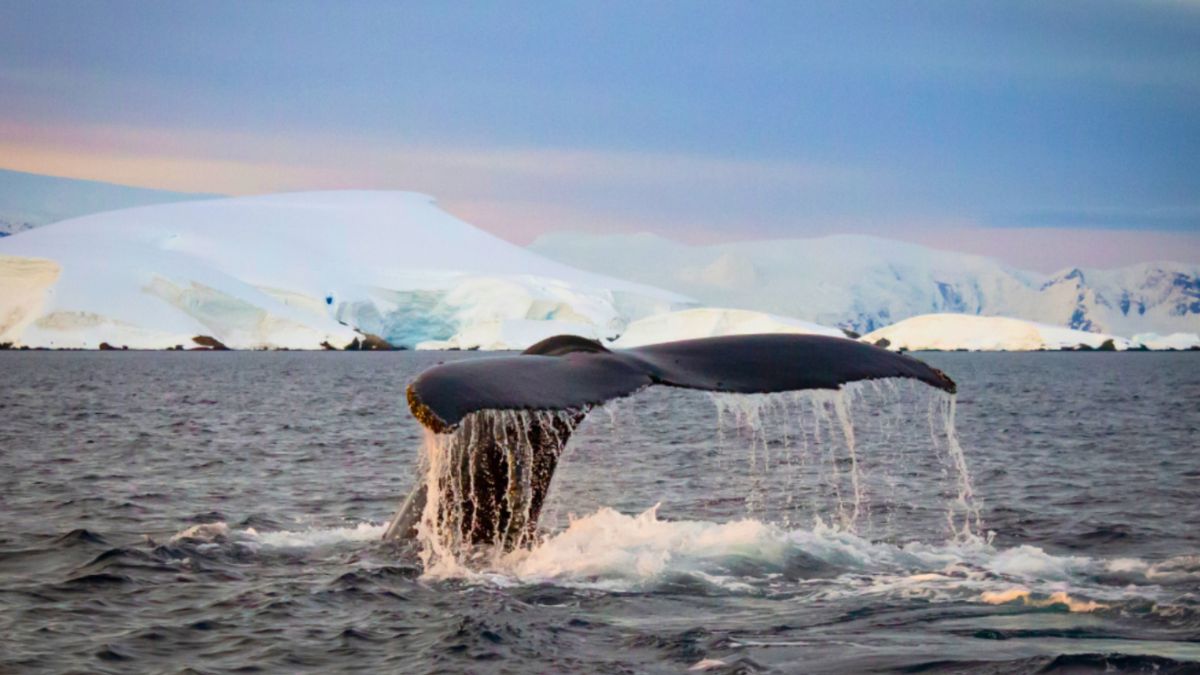Antarctica Expedition: How to Prepare Physically and Mentally for the Journey
- Get link
- X
- Other Apps
Antarctica Expedition: How to Prepare Physically and Mentally for the Journey
Get Ready for Your Antarctica Expedition
Booking your dream trip to Antarctica can quickly turn into a nightmare when you realize how unprepared you are for the journey ahead. Many people who dream of an Antarctica expedition worry about freezing temperatures, rough seas, and physical challenges. The thought of being unprepared for icy conditions and demanding outdoor activities can turn excitement into anxiety.

At Dorian Destinations, we understand that planning an Antarctica expedition requires more than just booking a ticket. Our experienced team has guided countless travelers through the preparation process. We believe that proper preparation is the key to a successful Antarctic journey.
Begins With the Right Preparation
Understanding the Physical Demands
An Antarctica expedition challenges your body in ways that regular travel never could. The continent’s extreme environment tests your endurance and strength. Most expeditions involve activities such as walking on uneven ice surfaces and spending long hours outdoors in freezing temperatures.
Your cardiovascular fitness plays a crucial role in how well you handle an Antarctica expedition. Activities like hiking across glaciers require stamina and good heart health. The cold air can make breathing more difficult.
Physical and Mental Preparations
for Your Antarctica Expedition
Building Your Cardiovascular Endurance
Start your fitness preparation at least three months before your Antarctica expedition. Here’s what works:
- Walking, jogging, or cycling for 30 minutes daily
- Swimming to prepare your lungs and heart
- Stair climbing while wearing a backpack
- Hiking on uneven terrain when possible
These exercises will build the endurance you need for long days of exploration. Practice climbing stairs with extra weight to simulate carrying equipment during your Antarctica expedition.
Strengthening Your Balance
Balance becomes incredibly important during an Antarctica expedition when walking on slippery surfaces. Core strength and stability help you stay upright on moving ship decks. These activities will improve your preparation:
- Yoga and Pilates classes
- Standing on one foot for extended periods
- Balance board exercises
- Walking on uneven surfaces
Simple balance exercises at home can significantly boost your confidence when walking on Antarctic ice.
Mental Preparation for Extreme Environments
Mental preparation is just as important as physical fitness for an Antarctica expedition. The isolation and vastness can feel overwhelming to some travelers. Practicing meditation helps you stay calm when facing challenging situations.
Reading about previous Antarctica expedition experiences helps set realistic expectations. Understanding the daily routine and wildlife behavior reduces anxiety. Knowledge builds confidence and helps you feel more prepared. For travelers prone to stress, anxiety, or isolation-related challenges, consulting with a mental health professional before the trip can be beneficial.
Dealing with Seasickness
Most Antarctica expedition journeys involve crossing the Drake Passage, known for its rough seas. Motion sickness can affect anyone, regardless of previous sailing experience. Pack these items:
- Motion sickness medications
- Ginger tablets for natural relief
- Seasickness wristbands
- Light snacks for rough weather
Staying hydrated during rough weather makes the crossing more comfortable during your Antarctic expedition. Allow time to acclimate to seasickness symptoms, and practice relaxation techniques that help manage nausea and improve comfort during the Drake Passage crossing. Seasickness typically peaks during the Drake Passage crossing and often lessens significantly once the ship reaches the more sheltered waters of the Antarctic Peninsula, as your body adjusts.
Sleep and Rest Preparation

Adjusting your sleep schedule before an Antarctica expedition helps reduce jet lag. The continent experiences nearly 24 hours of daylight during the summer months. This can disrupt normal sleep patterns. Using blackout curtains or a sleep mask can help manage the nearly 24-hour daylight during the summer months to improve sleep quality.
Quality rest is vital during your Antarctic trip because each day brings new adventures on the continent. Establish a bedtime routine that works in different environments. Good sleep habits help maintain energy levels.
Nutrition and Hydration
In addition to rest, maintaining proper nutrition is equally important. Proper nutrition fuels your body during the physical demands of an Antarctica expedition. Cold weather increases your caloric needs, so don’t diet while preparing. Focus on balanced meals with plenty of protein.
Staying hydrated becomes more challenging during an Antarctica expedition due to the cold, dry air. Practice drinking water regularly throughout the day. Dehydration can reduce stamina and cognitive function, especially in cold, dry environments where respiratory water loss and low humidity increase fluid needs.
Clothing and Gear Preparation
Proper clothing makes the difference between comfort and misery during an Antarctica expedition. Layer your clothing to adjust to changing temperatures:
- Moisture-wicking base layers
- Insulating middle layers
- Waterproof outer shells
- Waterproof boots with good traction
Practice walking in your expedition boots before the trip. Uncomfortable footwear can make it difficult to enjoy wildlife encounters and may increase your risk of slipping.
Safety and Emergency Preparedness
Safety protocols during an Antarctica expedition protect everyone from potential hazards. Listen carefully to safety briefings and follow all guidelines. Understanding emergency procedures reduces anxiety.
Communication with family during your Antarctic adventure may be limited due to remote locations. Inform contacts about expected communication gaps before departure. Most ships offer internet access, but connections can be slow. Some expeditions provide satellite phone access for emergency communication, although regular contact with family may remain limited.
Pre-Departure Health Check
Schedule a medical check-up before your Antarctica expedition to address health concerns. Discuss travel plans with your doctor and update vaccinations. Bring adequate supplies of prescription medications plus extras.
Dental health becomes important before an Antarctica expedition because emergencies are difficult to treat remotely. Dental emergencies are among the most common issues encountered during remote travel due to limited access to treatment. Schedule a cleaning and address potential problems before departure.
Final Preparation
Create a detailed packing list for your Antarctica expedition and check items off as you prepare. Start packing several weeks before departure to identify missing items. Organize gear by category for efficient packing.
Confirm all travel arrangements before your Antarctica expedition departure date. Double-check flight times and hotel reservations. Having backup copies of important documents provides peace of mind.
Frequently Asked Questions
-
What Is the Minimum Fitness Level Required for an Antarctica Expedition?
The minimum fitness level required for an Antarctica expedition is to be able to walk for several hours on uneven terrain and climb in and out of boats without assistance.
-
How Cold Does It Get During an Antarctica Expedition?
Temperatures during an Antarctica expedition in coastal regions typically range from 14°F to 41°F (–10°C to 5°C) during the summer months. However, wind chill factors can significantly lower the perceived temperature, sometimes dropping well below freezing depending on weather conditions.
-
What Happens if the Weather Prevents Activities During an Antarctica Expedition?
If the weather prevents activities during an Antarctica expedition, expedition leaders adjust schedules and substitute indoor activities like lectures.
-
Can I Use My Regular Camera During an Antarctica Expedition?
Yes, you can use your regular camera during an Antarctica expedition. However, you’ll need to protect it from moisture and cold, and bring extra batteries.
Prepare for Successful Antarctica Adventures

Your Antarctica expedition will create memories that will last a lifetime, but proper preparation lets you fully embrace the adventure. Physical fitness, mental readiness, and practical preparation work together to help you fully enjoy the experience. The effort you put into preparing pays dividends when you’re standing among penguins.
Dorian Destinations has helped hundreds of travelers prepare for successful Antarctic adventures through personalized guidance. Our team understands the unique challenges of polar travel and provides the resources you need to feel confident. When you’re ready to turn your Antarctic dreams into reality, we’re here to guide you.
Prepare for the Antarctica Expedition of a Lifetime With Us
Call Dorian Destinations at (305) 440–9200 Today!
(305) 440–9200
Dorian Destinations
(305) 440–9200
Listen to the Podcast

Fill up the form below to start planning your travels with us.
Our Services
Tours & Services
Destinations
Discover the World with Dorian Destinations
(305) 440–9200
- Get link
- X
- Other Apps
Comments
Post a Comment